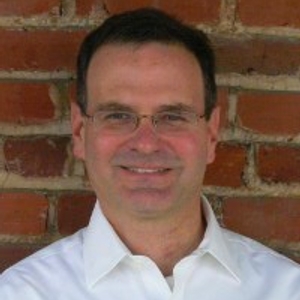Your local city council doesn’t get as much attention as Congress, but it may be a better place to deal with climate change and peak oil. Photo: Will Merydith.
“We live in an anti-political moment,” wrote David Brooks last week in the New York Times, “when many people — young people especially — think politics is a low, nasty, corrupt and usually fruitless business. It’s much nobler to do community service or just avoid all that putrid noise.”
Brooks rightly suggests that seeing Steven Spielberg’s new film Lincoln will show that politics, if done right, is more powerful than volunteerism, altering your personal lifestyle or any other strategy for change.
It shows that you can do more good in politics than in any other sphere. You can end slavery, open opportunity and fight poverty. But you can achieve these things only if you are willing to stain your own character in order to serve others — if you are willing to bamboozle, trim, compromise and be slippery and hypocritical.

Slow Democracy: Rediscovering Community, Bringing Decision-making Back Home by Susan Clark and Woden Teachout, Chelsea Green, 241 pp, $19.95.
Slow Democracy: Rediscovering Community, Bringing Decision-making Back Home isn’t advising anybody to do patronage politics in the style of Boss Tweed at Tammany Hall or to run campaigns like Chicago’s late Mayor Richard J. Daley, who famously marshaled the key demographic of deceased voters to help JFK win the White House in 1960.
But authors Susan Clark and Woden Teachout do start from the premise that Americans don’t much believe in national politics anymore because it seems to have gotten so corrupt and polarized. For those who follow what happens in their statehouse, the situation may appear little better.
Politics on the local level is another story.
Don’t try to beat ‘em, try to join ‘em
If you look closely, you’ll see that local government is not just something you need to get around and that you don’t, in fact, have to fight City Hall. Indeed, City Hall may be just waiting for you to walk through the front door and take your place as an active citizen.
You can’t say that about Congress or the White House. But I’m biased, because, since July of this year, I’ve served on my local city council.
And based on my experience so far, I agree with Clark and Teachout that local government has gotten a bad rap:
- Interminable meetings get nothing done — new inclusive processes for deliberation help meetings become relevant again. In places that have already adopted methods like study circles, online citizen feedback, polling for policy ideas at civic clubs and community centers, and even opening meetings by “giving testimony” as at an African-American church, it’s no longer your grandfather’s budget meeting. It’s accessible, relevant and goal oriented.
- Problems are too complex for ordinary citizens to understand — big business and big government want you to think that you need experts to do the heavy mental lifting so you don’t have to bother your pretty little head about things like budgeting, zoning or local economic development. In fact, if you put your head together with your neighbor’s, most issues are not that hard to grasp, especially when you use the online resources available today.
- Public participation takes too long — it can be pretty quick for a few bureaucrats to decide to raze a blighted neighborhood to put in a freeway or consolidate your kid’s elementary school with one across town. But when it comes to decisions, do you want fast, or do you want good?
- Government is too slow already — partisan gridlock at the national level is helping destroy the country. But unencumbered by party politics, Big Money or layers of bureaucracy, communities have the freedom make budget decisions that protect the 99%, solve race and social conflicts and protect the environment in ways that, as the authors put it, “our national leaders can only dream about.”
Local sovereignty growing
OK, communities may be able to work together better than Congress and the White House. But can they accomplish anything that matters?
In the American past, some of the biggest changes came from the bottom, not from the top.
Let’s not forget that it was local communities that pushed for Northern states to abolish slavery decades before the Civil War allowed Lincoln to make the Emancipation Proclamation and then push the Thirteenth Amendment through Congress as dramatized in Spielberg’s film.
And while you may not understand how America could embrace Prohibition, you should also remember that many counties had already declared themselves dry before a national ban on making or importing alcohol overwhelmingly passed Congress in 1919.
Today, local communities are leading the campaign for a constitutional amendment to repeal the Citizens United decision by the Supreme Court, as cities including New York, L.A. and Boulder have already declared that within their jurisdictions, corporations are not people. Clark and Teachout also tell us that local communities have also taken some bold moves on other key issues.
Just take food, farming and pollution for example. Communities have put in a moratorium on genetically modified crops (Mendocino County, CA), declared “food sovereignty” to protect local farmers against federal regulations that favor big producers (town of Blue Hill, ME) and even outlawed factory farms altogether to stop the dumping of waste from CAFOs into local water sources (Southhampton Township, PA).
In these battles against an unholy alliance of big government and big business, local officials obviously had to show courage and integrity to prevail. Their examples make it hard to remain cynical about local government.
Just take the young mayor of Tamaqua, PA, Christian Morrison, who cast the tie-breaking vote in the town’s local sovereignty ordinance to stop the dumping of chemical sludge. Local coal operators threatened legal action if the measure passed but Mayor Morrison wouldn’t back down:
If I am going to be sued, so be it. You want to take my row home, my little car, good luck, you can have them. We are going to protect our community.
– Erik Curren, Transition Voice






